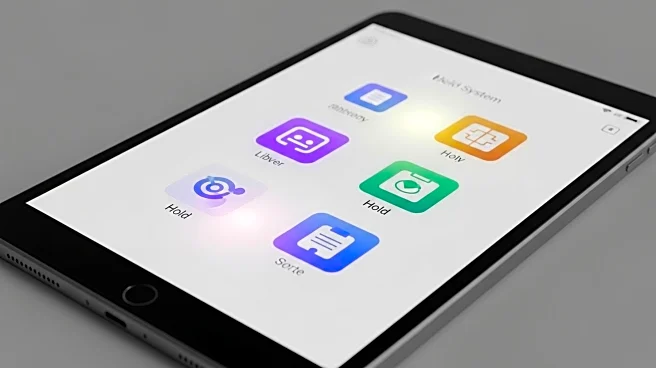What is the story about?
What's Happening?
Libby, a popular app for accessing e-books and audiobooks from local libraries, has implemented a significant change to its hold system. The new policy requires users to manually unsuspend holds within a year, or they will lapse. Previously, users could delay holds for up to 180 days, allowing flexibility in managing reading schedules. The change aims to address librarian feedback regarding long wait times and unclaimed holds, intending to improve circulation and reduce wait times. Overdrive, Libby's parent company, states that the new system ensures readers receive titles when ready, while efficiently moving copies through wait lists. The update has been met with mixed reactions, as some users appreciated the previous system's convenience, while others see potential benefits in reduced wait times.
Why It's Important?
The alteration in Libby's hold system is significant for library users who rely on the app for accessing free reading materials. The change could impact how users manage their reading schedules, potentially leading to more efficient circulation of titles and shorter wait times. This adjustment reflects a broader trend in digital library services, where user feedback and operational efficiency drive policy changes. While some users may find the new system less convenient, it aligns with efforts to optimize resource allocation and improve user experience. The change also highlights the evolving nature of digital library services, as they adapt to meet the needs of both libraries and readers.
What's Next?
Users will need to adapt to the new hold system by actively managing their suspended holds to avoid lapsing. Overdrive may continue to monitor user feedback and make further adjustments to enhance the app's functionality. Libraries and users might engage in discussions about the impact of these changes, potentially influencing future updates. The shift may also prompt users to explore alternative methods for managing their reading lists, such as utilizing other digital library services or adjusting their reading habits.

















